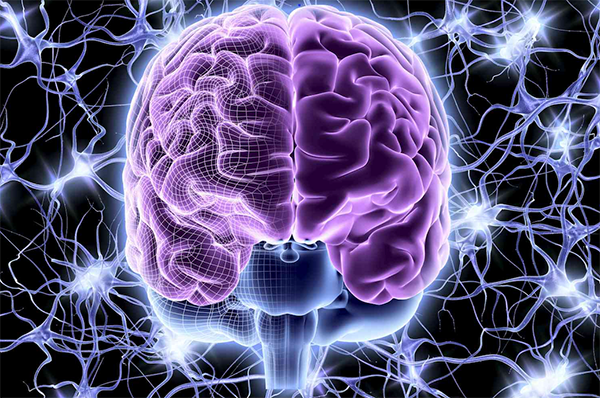InterAx Biotech, MS Center Amsterdam and the Vrije Universiteit Amsterdam join forces to unlock a novel target to promote remyelination in Multiple Sclerosis
Villigen – Switzerland, Amsterdam – The Netherlands, July 15th 2022
InterAx Biotech, the MS center of Amsterdam UMC and the Vrije Universiteit Amsterdam announce that they will combine complementary technologies to design and validate the efficacy of bioactive molecules to promote neuroprotection and remyelination. The efforts will open novel avenues to treat progressive multiple sclerosis.
Multiple sclerosis (MS) is one of the most common diseases of the central nervous system (brain and spinal cord). Today, more than 2.8 million people around the world suffer from MS. In Europe, the incidence it about 1 in every 450 people, of which more than 70% are women [1]. The chronic disease disrupts the ability of the nerves to conduct electrical impulses to and from the brain causing various symptoms including fatigue and cognitive and movement problems, resulting in progressive lifelong disabilities.
The goal of the program is to design and validate the efficacy of new compounds to promote remyelination and neuronal function in patients with MS to slow down disease progression. This will be a breakthrough compared to the current standard of care based on reduction of disease activity and management of symptoms.
In the collaboration, partners will optimize hit molecules steered by the InterAx’s artificial intelligence driven discovery platform. Optimization and synthesis approaches, as well as pharmacology and toxicology efforts will be led by Rob Leurs (Medicinal Chemistry) at the Vrije Universiteit Amsterdam. At the MS Center Amsterdam, selected molecules will first be tested by Elga de Vries and Merel Rijnsburger (Molecular Cell Biology and Immunology, UMC) for their effect on remyelination in experimental models. Compounds that show promising effects based on multi-parameter optimization will be chosen for further in vivo studies. An innovative cortical animal model of MS that reflects both neurodegeneration and demyelination, as seen in MS patients, will be used to test the most promising compounds.
With this project, InterAx Biotech, MS Center Amsterdam and the Vrije Universiteit Amsterdam are further strengthening their successful long-term relationship. The partnership already led to the discovery of first in class drug molecules with high affinity and potency on a novel target that are under further investigation as anti-cancer therapy in animals. Initial promising results in vitro show that the drug molecules block proliferation and migration of breast cancer cells, and also blocks in vivo the receptor target function – thus promising to stop tumor growth and metastasis.
The project is supported by Consortium Knowledge and Innovation (TKI) for high quality and highly promising industry-academia collaborations, a program from Health Holland – Top Sector Life Sciences & Health.
InterAx Biotech AG
InterAx is pioneering computational pharmacology for drug discovery. The Swiss company focuses on the generation and optimization of drugs which trigger a specific and well characterized effect on signaling pathways, thus leading to higher therapeutic efficacy and safety. The company is specialized in GPCR drug discovery and covers hit-generation, hit-to-lead and lead optimization for all targets including orphans.
InterAx technology platform is combining artificial intelligence, mathematical models of signaling pathways, cellular pharmacology and computational chemistry.
For more information, please visit www.interaxbiotech.com and follow us on LinkedIn @InterAx Biotech
About Vrije Universiteit Amsterdam, department of Medicinal Chemistry
The Medicinal Chemistry group of the Vrije Universiteit Amsterdam has a long-standing expertise in the area of GPCR drug discovery with an emphasis on histamine and chemokine receptors. Next to detailed pharmacological and cell signaling studies of these GPCRs, the group targets various of these GPCRs by means of fragment-based approaches and structure-based design, combined with state-of-the-art synthetic approaches. The group is integral part of the Amsterdam Institute of Molecules, Medicines and Systems, one of the high-profile research institutes of the Vrije Universiteit.
For more information, please visit aimms.vu.nl.
About MS Center Amsterdam
The MS Center Amsterdam has an excellent international reputation and is one of the top three MS research centers in the world. The MS Center is a multidisciplinary center within Amsterdam UMC in which more than 100 researchers from different disciplines cooperate. One such discipline is the Neuroimmunology research group, embedded in the Department of Molecular Cell Biology and Immunology. The group focuses on various neuro-inflammatory diseases including Alzheimer’s disease, stroke and MS. Using state-of-the-art techniques, the group strives to gain in-depth knowledge on immunological and neurodegenerative processes in order to develop new treatments.
For more information please visit immunologyamsterdam.org.

